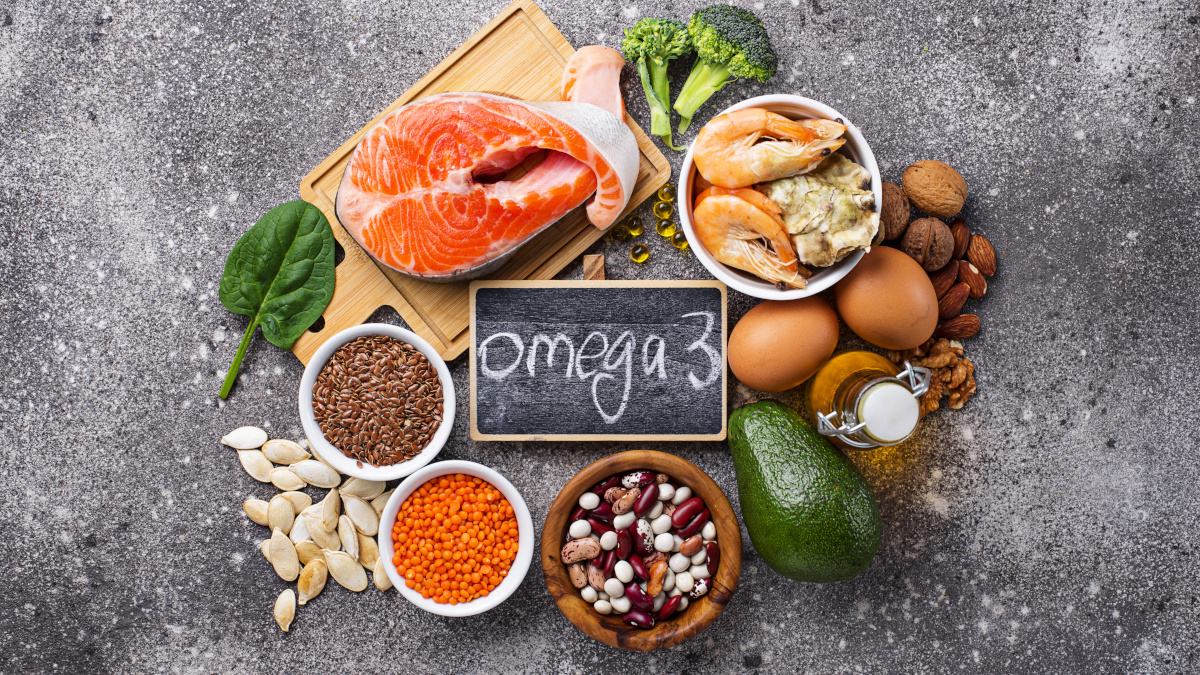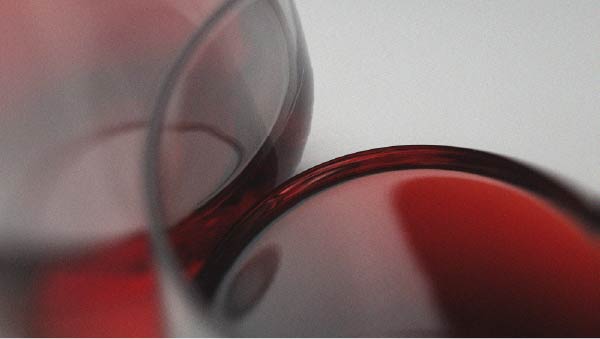What are the main plant and animal sources of omega-3 ?
Omega-3 are polyunsaturated fatty acids essential for health. They are primarily provided by the diet. Discover which foods have the highest omega-3 content and how you can obtain maximum benefit from them.

Omega-3s: ALA, EPA, DHA: an update on these healthy fatty acids
Fats or lipids are composed of specific hydrocarbons called fatty acids which fall into three categories depending on the shape of their molecules: industrially-produced trans fatty acids, saturated fatty acids and natural-source unsaturated fatty acids. (1)
The first two types should be avoided as much as possible as they have been widely shown to promote cardiovascular disease(2). Unsaturated fatty acids, however, play a crucial role in helping the body to function normally. They include:
- omega-9, which the body is able to produce and which are found at sufficient levels in many foods;
- omega-6, widely available from the diet, particularly through consumption of meat from animals fed grain-based feeds containing soy and corn;
- omega-3, which are further categorised into three types of molecule, alpha-linoleic acid (ALA), which is a precursor of docosahexaenoic acid (DHA) and eicosapentaenoic acid (EPA) (3).
According to Anses, the French Agency for Food, Environmental and Occupational Health & Safety, omega-3 are “indispensable for normal growth and the physiological functions of cells, but cannot be synthesised by humans or animals or synthesised in sufficient quantities to meet the body’s needs. They must therefore be provided by the diet”(4).
The benefits of omega-3
In fact, omega-3 fatty acids help to maintain normal:
- blood triglyceride and cholesterol levels (ALA, DHA and EPA) ;
- blood pressure (DHA and EPA) ;
- heart function (DHA and EPA) ;
- brain function (DHA) ;
- vision (DHA) (5-6).
Given that the diet already provides sufficient omega-6 and omega-9, we need to focus on increasing our omega-3 intake from the diet, aiming for at least (7):
- 2g a day of ALA;
- 250mg a day of EPA and DHA.
Plant-source foods rich in omega-3
Flax
Flax is the primary dietary source of alpha-linoleic acid (ALA). Flaxseeds, or linseeds as they’re also known, actually contain almost 17g of ALA per 100g. Flax can be consumed in two ways to benefit from its ALA content:
- as seeds, which, because of their indigestible husks, must be ground or milled before being mixed into yogurt, sprinkled on salads, etc. Anyone who suffers from constipation, blockages or diverticulitis should, however, avoid linseeds.
- as flaxseed or linseed oil, which contains 53.3 g of ALA per 100g. Note, however, that linseed oil is not able to withstand high temperatures and loses its nutritional benefits during cooking. It should also be kept in the refrigerator as it quickly becomes rancid. And it is very high in calories, with around 900 kCal per 100g.
Nuts
As well as being delicious and easy to store once harvested in the autumn, nuts are also an excellent source of omega-3. Fresh nuts contain an average 7.5g of ALA per 100g and nut oil, 12g per 100g.
Note, however that:
- like linseed oil, nut oil loses its nutritional benefits when heated, and like all oils, is highly calorific (900 kCal per 100g,);
- fresh nuts are also very high in calories, with around 650 kCal per 100g.
Chia seeds
Like linseeds, chia seeds are considered to be super-foods and have been very much in vogue for several years now. And justifiably so: they’re an excellent source of omega-3 fatty acids: 100g of chia seeds provides almost 18g of ALA.
Note, however, that it’s important to add liquid to chia seeds in order to benefit from their properties. It is best to leave them to soak overnight in the refrigerator, in either water, milk or plant milk, to form a kind of nutritious porridge which is excellent for health.
Rapeseed
Rapeseed oil is also an excellent source of ALA which has the added advantage for those who like it, of being largely produced in Europe, meaning it has not travelled thousands of miles before ending up on our plates. Rapeseed oil provides an average 7.5 g of ALA per 100g but once again, it is very high in calories.
Animal sources of omega-3
In terms of omega-3, plant-source foods only provide ALA, and while ALA is a precursor of EPA and DHA, the conversion process is not very effective. In other words, the body produces very little DHA and EPA from the ALA contained in plant-source foods. What’s more, animal-source omega 3 fatty acids are much better absorbed by the body, which is why we need to eat the following foods to ensure a good intake of omega-3.
Raw salmon
Raw salmon is a very good source of omega-3, providing just over 1g of DHA per 100g. The problem is that like many oily fish, salmon accumulates heavy metals and other pollutants and it’s therefore important not to eat too much.
Mackerel
Mackerel is undoubtedly the top performer when it comes to omega-3. 100g of mackerel provides 2.5g of DHA and almost 3g of EPA. Whether fresh and grilled, or canned, you should try to eat mackerel at least once a week.
Note however: if you eat canned mackerel, be aware that the omega-3s tend to leach out into the preserving oil. It’s therefore best to eat both the mackerel fillets and the accompanying oil.
Sardines
Like their mackerel cousins, sardines also have a good omega-3 content, providing an average 1.7g of DHA per 100g.
Cod liver oil
Our grandmothers swore by it and the majority of over-60s would have been forced to take it as children: cod liver oil is rich in vitamins and omega-3.
Omega-3 dietary supplements
To boost your intake of the omega-3 fatty acids ALA, EPA and DHA, you could also start taking a course of supplements. But which should you choose?
Krill oil
This shrimp-like crustacean which forms the bulk of the diet of marine mammals with baleen is a miracle of nature rich in omega-3 fatty acids and antioxidants. And being at the start of the food chain, it does not accumulate pollutants like salmon or other fish. One way of benefitting from its properties is to take the supplement Krill Oil.
Calanus oil
Calanus is another type of zooplankton rich in omega-3… which is actually eaten by krill! We’re going even further back in the food chain when we consume calanus oil, for example, in the form of the supplement Arctic Plankton Oil (also rich in stearidonic acid (SDA), astaxanthin...)
Marine-source EPA and DHA
Last but not least, you could opt for a totally purified fish oil, with high levels of EPA and DHA. One small tip: to gain maximum benefit from the omega-3s, make sure it’s a supplement with a TOTOX (total oxidation) value of less than 10, such as the product Super Omega 3.
References
- CUVELIER, Christine, CABARAUX, Jean-François, DUFRASNE, Isabelle, et al.Acides gras: nomenclature et sources alimentaires. In : Annales de Médecine Véterinaire. Annales Medecine Veterinaire, 2004. p. 133-140.
- COMBE, Nicole, BOUE, Carole, et ENTRESSANGLES, Bernard. ASPECTS NUTRITIONNELS DES ACIDES GRAS TRANS: Consommation en acides gras trans et risque cardio-vasculaire: Étude Aquitaine. Oléagineux, corps gras, lipides, 2000, vol. 7, no 1, p. 30-34.
- COVINGTON, Maggie. Omega-3 fatty acids. American family physician, 2004, vol. 70, no 1, p. 133-140.
- https://www.anses.fr/fr/content/les-acides-gras-om%C3%A9ga-3
- VON SCHACKY, Clemens et HARRIS, William S. Cardiovascular benefits of omega-3 fatty acids. Cardiovascular research, 2007, vol. 73, no 2, p. 310-315.
- DYALL, S. C. et MICHAEL-TITUS, A. T. Neurological benefits of omega-3 fatty acids. Neuromolecular medicine, 2008, vol. 10, no 4, p. 219-235.
- SIMOPOULOS, Artemis P., LEAF, Alexander, et SALEM, Norman. Essentiality of and recommended dietary intakes for omega-6 and omega-3 fatty acids. Annals of nutrition & metabolism, 1999, vol. 43, no 2, p. 127-130.
Keywords
10 Hours
Very good experience
Very good experience, the products arrived in time, in perfect condition and are good quality. Thank you.
GABI TIRCOCI
6 Days
very good expereince
very good expereince
Jelena Đaković
6 Days
Very good products.
Very good products.
Agnes BENDSAK
8 Days
Just OK
Just OK, ordering from company for many years and being safisfied
Lynn Mae
8 Days
Recomendo
Produtos encomendados são recebidos atempadamente e de acordo com o anunciado! Muito satisfeita!
Carla Sofia
9 Days
Everything is great!
Everything is great!
Jonas
14 Days
The delivery was fast and the product…
The delivery was fast and the product is great
SOMMARIVA Gianni
15 Days
Great service and lots of information
Great service and lots of information
Gabi
18 Days
Service Satisfaction
I’m satisfied with the service; it fulfilled what it set out to do.
Anfhony Abreu
21 Days
Original product and fast delivery
Original product and fast delivery. I haven't started it yet, but will do soon.
Vincenza Catania
24 Days
Good quality
Good quality. Good service.
Leonel Guzman
26 Days
Top!!!!!!!!
Top!!!!!!!!
Michael
28 Days
Excellent!
Products are great and delivered fast!
PARDINI Debora
28 Days
From order to receive the product
From order to receive the product, the process is smooth & fast. It’s good to customers.
WONG Mei Ling
29 Days
Fast delivery
very quick delivery to italy. product is good.
Customer
of experience
your money back
##montant## purchase




